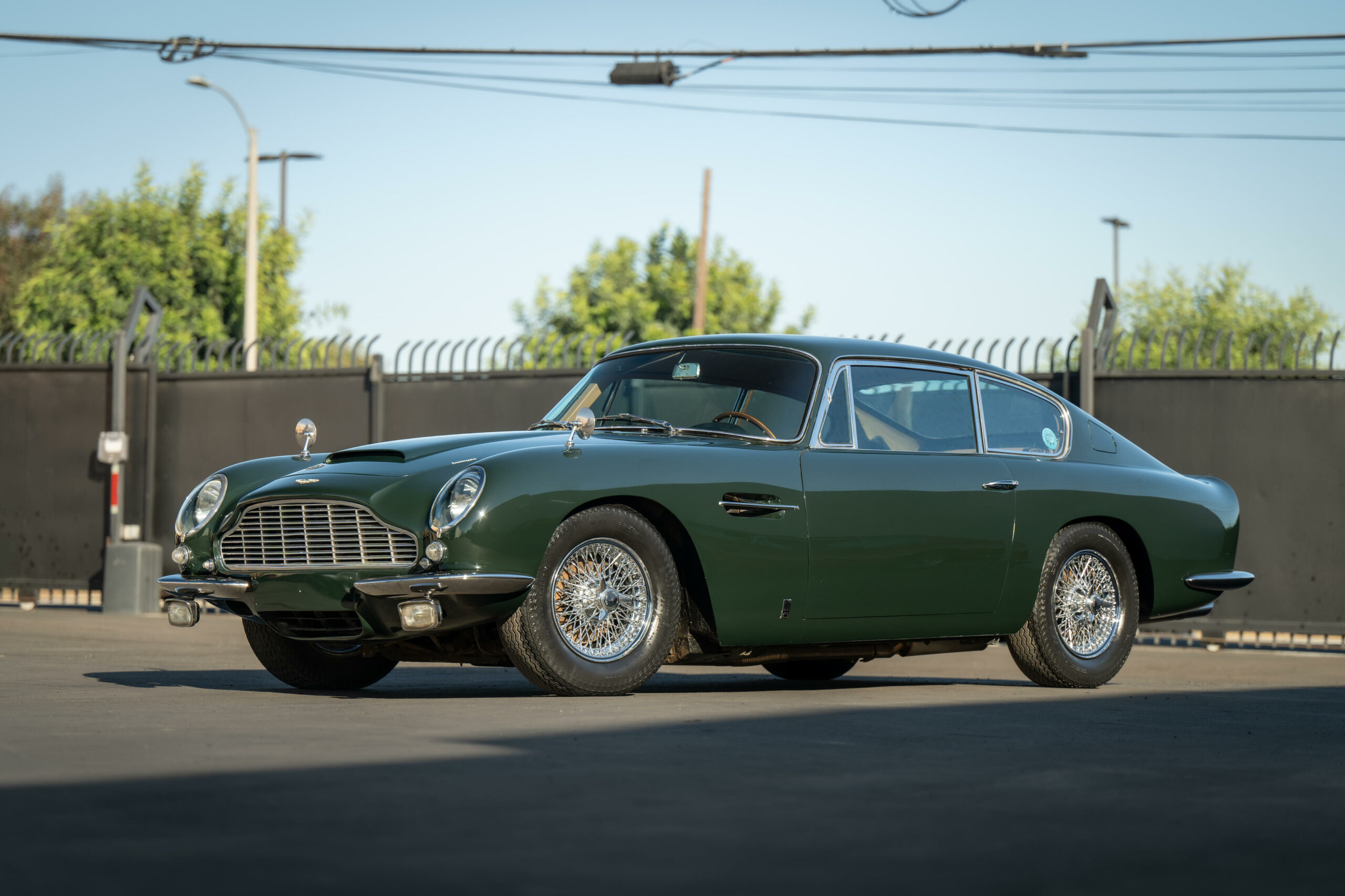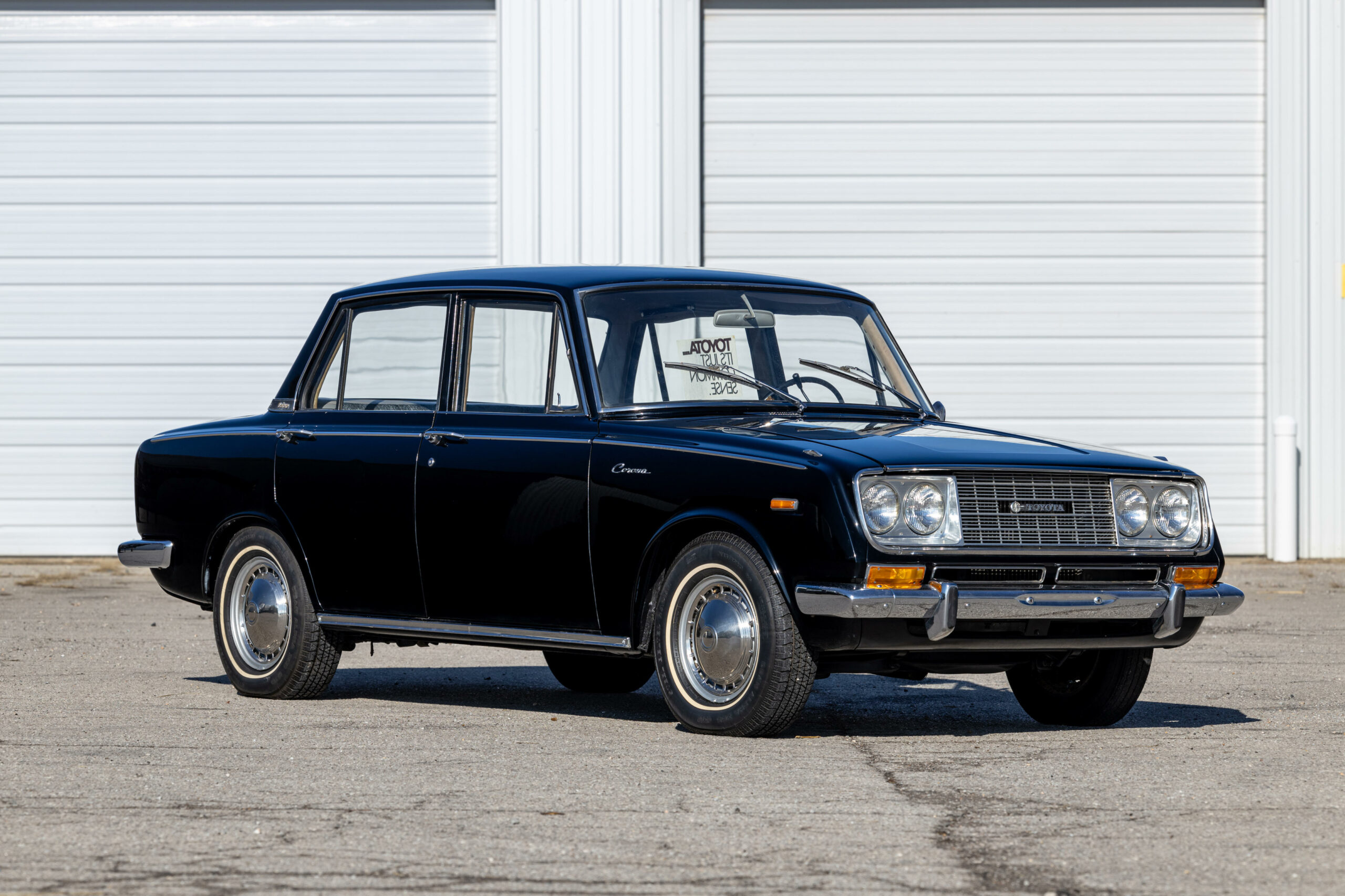Categories
- 1910s
- 1920s
- 1930s
- 1940s
- 1950s
- 1960s
- 1970s
- 1980s
- 1990s
- 2000s
- AMC
- Aston Martin
- Autobianchi
- Bentley
- BMW
- Bristol
- Buick
- Cadillac
- Chevy
- Chrysler
- Citroen
- Classic Cars
- Classic Hot Rods
- Classic Muscle Cars
- Classic Sports Cars
- Cunningham
- Davis
- Duesenberg
- Edsel
- Facel Vega
- Ferrari
- Fiat
- Ford
- Ghia
- Hillman
- Hudson
- Jaguar
- Kaiser
- Lamborghini
- Luxury Car
- Maserati
- Mercedes-Benz
- Moretti
- Packard
- Panhard
- Plymouth
- Porsche
- Reliant
- Rolls-Royce
- Studebaker
- Toyota
- Uncategorized
- Vespa
- Volvo
- Wolseley
The history of Toyota is a story of Japanese automotive innovation, global expansion, and a commitment to quality and efficiency. Founded in 1937 by Kiichiro Toyoda, Toyota has grown to become one of the world’s largest and most influential automobile manufacturers.
Kiichiro Toyoda, the son of Toyota Industries founder Sakichi Toyoda, was inspired by his father’s inventions and the potential of the automotive industry. Under his leadership, Toyota set out to create a new kind of automobile company that would prioritize innovation, production efficiency, and quality.
Toyota’s early years were marked by the development of its first passenger car, the Toyota Model AA, in 1936. This car incorporated engineering principles that emphasized durability and reliability, setting the foundation for Toyota’s reputation for quality.
After World War II, Toyota faced significant challenges but rebounded with the introduction of the Toyota Land Cruiser, which became popular for its ruggedness and reliability, particularly in off-road environments.
In the 1950s and 1960s, Toyota expanded its presence in international markets, entering the United States with the Toyota Crown and Toyota Corona. The 1960s also saw the introduction of the Toyota Corolla, a compact and affordable car that would become one of the best-selling cars in history.
Toyota’s commitment to continuous improvement and efficiency led to the development of the Toyota Production System (TPS), also known as “Lean Manufacturing.” TPS revolutionized manufacturing by emphasizing waste reduction, quality control, and a culture of constant improvement. This approach would later be adopted by companies worldwide.
In the 1970s, Toyota introduced the Toyota Celica and the Toyota Supra, catering to enthusiasts seeking performance and style. However, it was the fuel-efficient Toyota Corolla and the compact Toyota Camry that solidified Toyota’s reputation as a manufacturer of reliable, economical, and practical cars.
In the 1980s, Toyota ventured into luxury vehicles with the launch of the Lexus brand. Lexus quickly gained recognition for its combination of cutting-edge technology, comfort, and performance, challenging established luxury car manufacturers.
In the 1990s and early 2000s, Toyota expanded its hybrid technology leadership with the introduction of the Toyota Prius, the world’s first mass-produced hybrid car. The Prius paved the way for a new era of environmentally friendly vehicles.
Today, Toyota produces a wide range of cars, trucks, and SUVs, and remains at the forefront of hybrid and electric vehicle development. The brand’s reputation for quality, durability, and reliability continues to be a driving force behind its global success.
Toyota’s logo, featuring three ellipses symbolizing the unification of the hearts of customers and the heart of Toyota products, reflects the company’s commitment to putting the customer at the center of everything it does. Toyota’s legacy in the automotive industry is characterized by its pursuit of innovation, efficiency, and a dedication to providing vehicles that meet the needs of people around the world.





